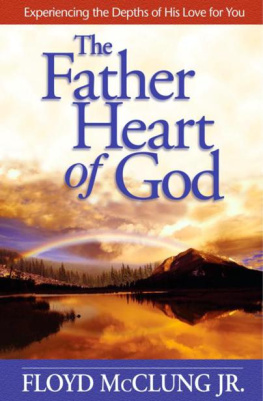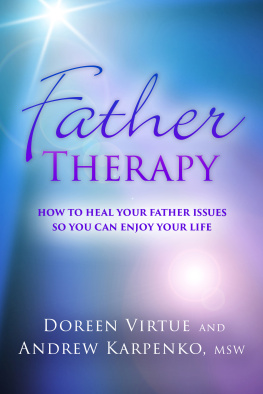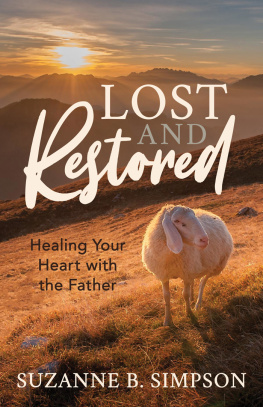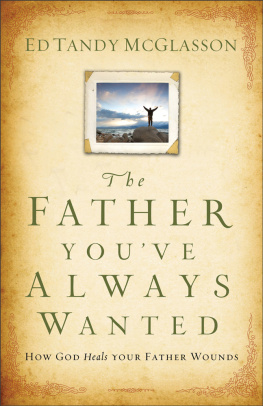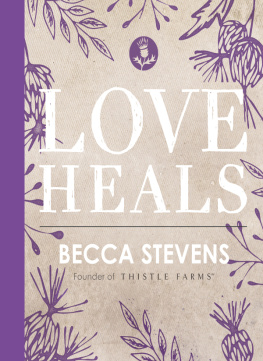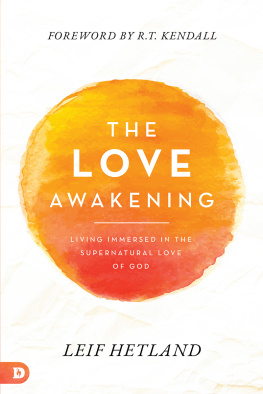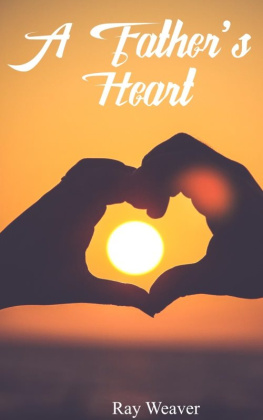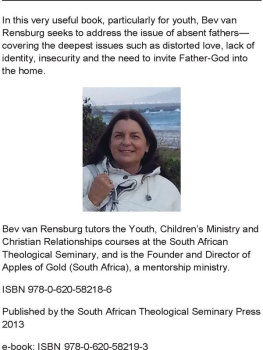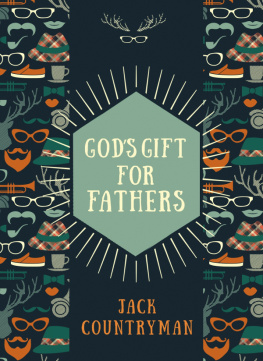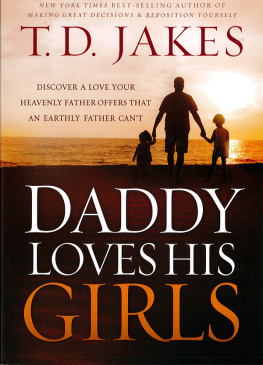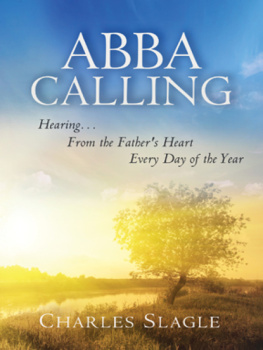EUGENE, OREGON


To my dad,
who loved me and lived before me the God I know today.
I am very grateful for the help and advice of many friends who made it possible for me to write this book.
I am particularly thankful to my wife, Sally, for her love and encouragement, and to my children, Misha and Matthew, who were very patient with me while I spent many hours working in my study, and to my secretary, Lura Garrido, for typing and retyping the manuscript.
My special thanks also to Linda Patton and Terry Tootle, who helped Lura with the typing; to Tom Hallas, Roger Forster, and Alv Magnus for the suggestions they made; and to Sharon Mutchler, who developed the study guide. Thanks to Christine Alexander and Ed Sherman for their research assistance. And I am very grateful to Dr. H.Wayne Light, who is not only a highly trained psychologist but also my cousin and friend, for his suggestions and help in drawing up the guidelines contained in the appendix.
Many friends encouraged me along the way when I doubted the value of the book or my ability to finish it. I am especially grateful to Henk Rothuizen, Jon Petersen, Arne Wilkening, Wilbert van Laake, John Goodfellow, Lynn Green, Dr. Phil Blakeley, and John Kennedy for their timely encouragement and counsel.
I also sincerely appreciate the encouragement I received from Richard Herkes and the people at Kingsway Publications. They reflected a kingdom attitude in all our dealings together.
Most of all I am grateful to the Lord, for all that is good is from Him!
Its my two children, Misha and Matthew, and I studied the painting, we experienced a feeling of great sadness. It covered a very large canvas and was painted in sweeping, childlike strokes. The tall, sticklike figure topped with a huge, square-shaped head was portrayed in dark colors that conveyed a sense of coldness and harshness. The beaklike nose and great protruding arms almost made us feel as if it were a monster.
It was titled Man, but according to one of the guides at Amsterdam's Stedelijk Museum, the original name of Karel Appel's work was My Father.
The three of us discussed the painting for a long time. What kind of relationship did Karel Appel have with his father? Even more important, how did that affect his view of God? We wondered if he believed in God, and if so, did he perceive Him as a loving Father?
I have written this book because most people do not know God as a loving Father. They do not think of Him as someone to love and trust, someone who is worthy of their absolute loyalty and commitment. Whether a person is a Christian or not, at one time or another everyone gives serious thought to the question of who God is and what He is like.
Many people long to know God personally but imagine Him to be a remote, impersonal Being who cannot be known. Others yearn for a relationship with Him but cling to the misconception that He sits in heaven wearing a black suit and twisting His long gray beard as He glares down seeking to judge anyone who dares to smile on Sunday.
Everyone gives serious thought to who God is and what He is like.
This book is written to give us a fresh way to look at God, and to help us deal with areas in our lives that can hinder our relationship with Him as our Father. We will explore how past hurts can color our concept of God and how our earthly fathers may have unknowingly influenced our view of our heavenly Father.
We will also consider how we should respond to God if He is indeed a loving Father. It is one thing to talk about God-who He is and what He is like. It is quite another to talk about our responsibility toward Him if He is loving and just.
I believe that God has created us to be like Him, only on a smaller scale, of course! He has made us to love each other, to care for His creation responsibly, and to be secure and confident in who we are. But our selfishness and emotional hurts hold us back from being the people our Father intended us to be.
The fact that God cares for us and offers us freedom from our selfishness and healing for our hurts is what motivated my wife and our family to live in Amsterdam's red light district and share His love there. That is why we lived for three years in Afghanistan. It was there that we met Steve, who had a unique story to tell...
He called himself Steve, but I had the feeling this wasn't his real name. His jeans were old and bleached, not because he had bought them that way in a trendy European boutique, but because of constant wear on the "hippie trail." He had traveled overland from Amsterdam with a friend on the Magic Bus, a cheap but sometimes risky travel service, and they had recently come to Kabul, Afghanistan.
My wife, Sally, and I, along with a few stalwart friends, lived in Kabul and ran a free clinic for the Western society dropouts who drifted across Central Asia in search of adventure, drugs, and escape from the lifestyles they had come to loathe. Many had been pushed to the fringes of society by rejection and a deep sense of alienation. Nothing in their surroundings provided a sense of identity or belonging. Steve was no exception.
In the weeks that followed, he occasionally visited us at the clinic. One day he surprised me by asking if I wanted to hear about the happiest day of his life. This was the first time he had volunteered to talk about himself, so I was eager to listen.
"I'll tell you the happiest day of my life," he said as a strange smile spread across his face. The locked-in pain and hostility erupted in a torrent of anger.
"It was my eleventh birthday. That was the day both my parents were killed in a car accident!"
His voice seethed with bitterness. "They told me every day of my life that they hated me and didn't want me. My father resented me and my mother constantly reminded me I had been an accident. They didn't want me, and I'm glad they're dead!"
In the weeks ahead I continued to try to help Steve, but lost track of him soon after that. His pain and anger, however, remain vividly etched in my memory.
What Sally and I discovered in Afghanistan in the early 1970s was not just a few wounded Westerners running away from their problems, but a whole subculture of hurting people. Over the past years we have invested our lives helping emotionally wounded people and have discovered that no level of society is immune from the pain of broken relationships.
One upper-class young man who came to us for counseling described how his father made him look on as he beat and stabbed his mother. A young woman told us of the humiliations and molestations she suffered at the hands of her father, brothers, and grandfather. Another young man confided in us that his parents gave him to his grandparents simply because they did not want him. His grandparents, in turn, put him in an orphanage at the age of five. There the director beat him every Sunday if he refused to go to church. Years later he committed his life to Christ through our work in Afghanistan, and then returned home to express his love and forgiveness to his parents with a gift. When his mother saw him, she cried out in rage and would not let him enter the house. A handsome young husband wept as he shared that he could never remember hearing the words "I love you" from his lawyer father.

